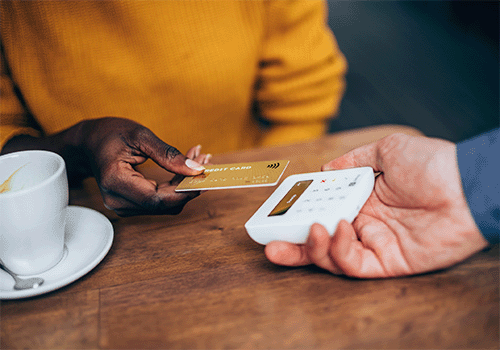Consumer Protection ? Which Option is Best?
01/20/2023

Credit, debit, and prepaid cards each have pros and cons. When should you use each?
Credit and debit cards look alike, and they are used in virtually identical ways. But there are some significant differences that make them both important tools to have in your financial toolbox.
By definition, spending with a credit card means you are spending borrowed money. Many people use credit cards and pay off their balances each month in full, incurring no fees or interest. Others carry balances from month to month, meaning they're paying interest on money they've already spent, and could be charged a fee for missing a payment.
On the other hand, spending with a debit card means you're spending your money - it comes directly from your checking account. When the money is gone, it's gone. When used properly, spending with debit cards can be part of a solid strategy for spending within a budget and staying out of unplanned debt. But be careful of something called "courtesy overdraft protection."
Courtesy overdraft protection is a fee-based service most financial institutions offer to help consumers avoid declined transactions. Here's how it works - if you overdraw your account, the charge will not be declined. Rather, the bank will loan you enough money to cover the transaction for a fee - typically around $35. No matter how small the overdraft, the same fee applies. If you don't have a credit card, courtesy overdraft protection might be useful in an emergency, but it is an extremely expensive loan in the vast majority of cases. You may also be charged multiple fees before you realize your account is overdrawn.
When you open your deposit account, the financial institution (FI) may ask you if you want courtesy overdraft protection for ATM and certain debit card purchases you make that overdraw your account. If you agree, the FI may pay those transactions and charge you overdraft fees. If you do not agree, the transaction will be declined and there will be no fees. You can change your mind about whether you want the service at any time. Some FIs may offer you these options on all transactions that overdraw your account, not just ATM and certain debit card purchases.
So unless you don't have enough money in your checking account to make a purchase, why would you ever need to use a credit card? Fraud protection is one important reason, as are protections from damaged or undelivered merchandise you purchase. Thanks to the Fair Credit Billing Act, you have little or no liability for unauthorized charges, damaged goods, or for merchandise that was never delivered. Credit card issuers also provide dispute settlement when you ordered something that wasn't what was promised or if a merchant refuses to refund your money. These protections are especially important for mail order transactions or in cases of identity theft.
If your debit card is stolen, your liability coverage depends greatly on when you report unauthorized activity to your financial institution. In the worst case scenario, meaning you don't discover fraudulent charges for more than 60 days after the FI sent you a statement showing the unauthorized activity, you could be responsible for all charges made after the 60 days. Even if you report fraudulent charges before the 60-day limit, you could be responsible for up to $500 if you know your card is being used and you do not promptly tell the FI. Be sure to monitor your account activity closely by reviewing your statements or using online banking.
A good strategy is to use a debit card for everyday purchases and to use a credit card for internet and mail order purchases - just make sure to pay off your credit card balance to avoid interest charges.

